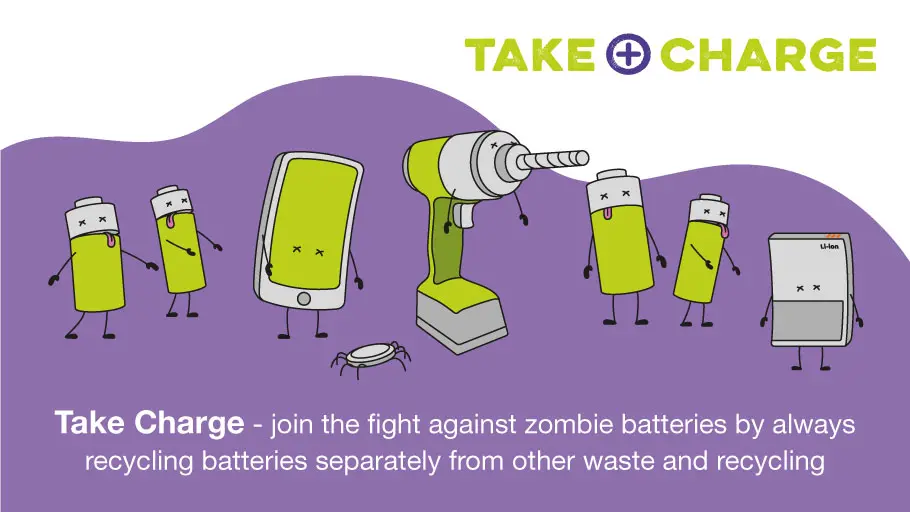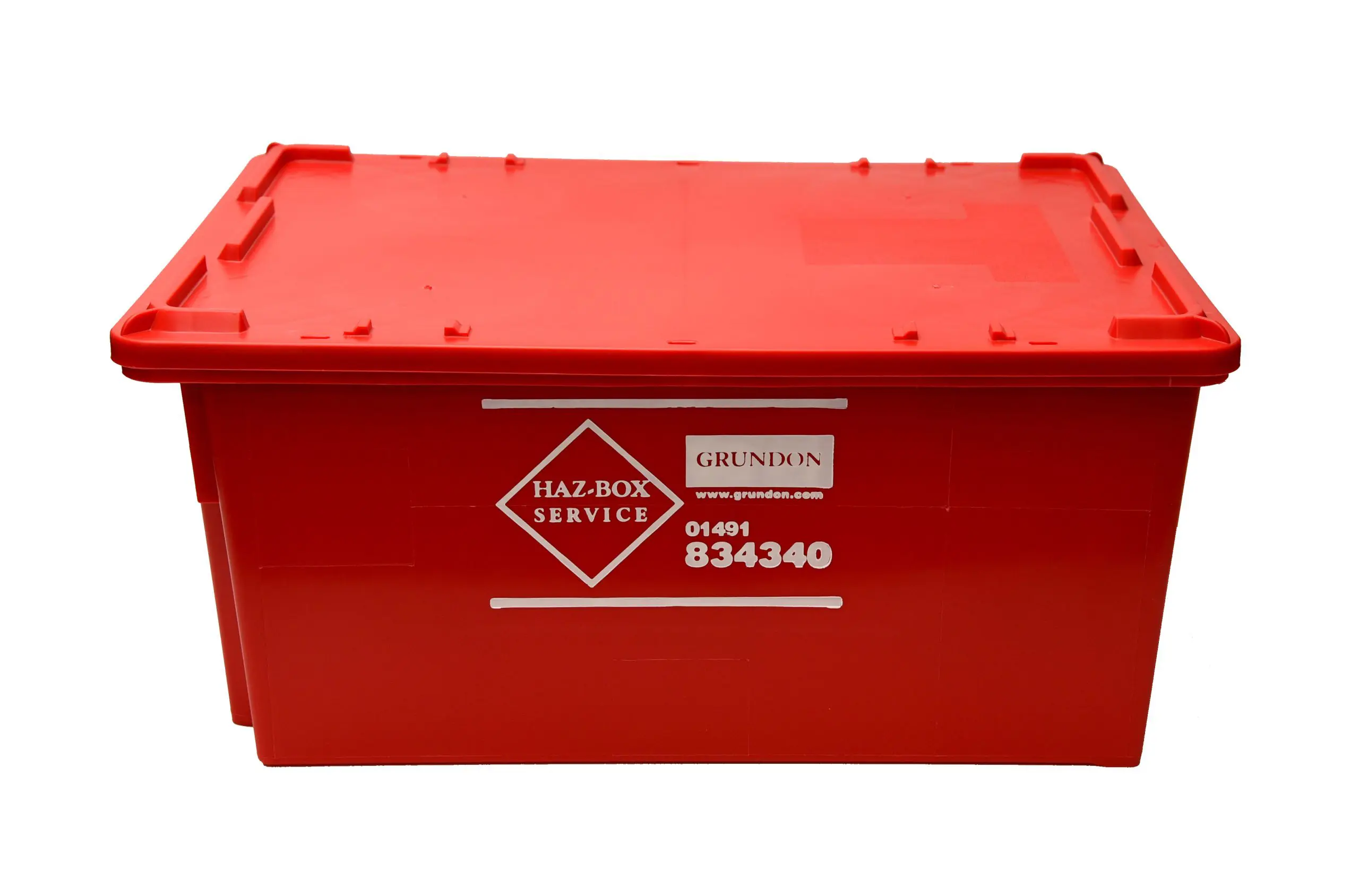Today (Monday 26 October) the recycling and waste management trade body, the Environmental Services Association (ESA), launched the campaign Take Charge.
The campaign will not only encourage consumers to use battery recycling facilities, but it will also raise awareness about the wide-ranging devices that contain high-energy rechargeable batteries and help consumers understand how to recycle these devices.

The dangers of used ‘zombie’ batteries
Used batteries thrown away in either general rubbish, or mixed with other recyclable materials like card, metals and plastics, can be very dangerous. ESA’s Take Charge campaign refers to these used batteries as “zombie batteries”, largely because “they have a habit of coming back from the dead to terrorise recycling and waste facilities.”
Once collected, any batteries that have been placed into your general waste or mixed recycling collection are unintentionally likely to be compacted, squashed, punctured, shredded or soaked by liquids – either whilst being transported or when they arrive at the waste treatment facility. When this happens, some types of batteries can become very hot and even ignite, resulting in fires that put can put lives at risk, cause millions of pounds worth of damages and disrupt waste collection and treatment services.
Although safe to use normally, powerful lithium-ion batteries are typically the most dangerous if they are not recycled properly. These batteries are often found in products like laptops, tablets, mobile phones, radio-controlled toys, Bluetooth devices, shavers, electric toothbrushes, power tools, scooters and even e-cigarettes.
If a lithium-ion battery comes into contact with liquid – perhaps if placed in a mixed recycling bag, a waste bin, or a drum for ‘safe-keeping’ and water from rainfall, a half-empty bottle or even from condensation gathers around it, then the battery can ignite.
Recent data collected by the ESA shows that, between April 2019 and March 2020, lithium-ion batteries alone were thought to be responsible for more than 250 fires at its members’ facilities during the year – or well over a third (38%) of all fires.
Grundon are proud to be supporting the Take Charge campaign, and hope that by encouraging the public to recycle batteries responsibly, it will reduce the number of batteries present in general waste and recycling, thereby reducing the number of fires in the future.
Toni Robinson, Grundon’s Head of Compliance, says “Many small lithium batteries in our high-tech gadgets are still going to landfill because they’re either difficult to extract, or people simply forget to take them out.

“And therein lies a growing problem. Waste is crushed as it goes into our waste vehicles, and Grundon is seeing an increasing number of fires each year directly related to lithium batteries. Consider the potential dangers of a fire in a waste collection vehicle in a town centre? This situation could be life threatening unless we all continue to remain vigilant.”
How to reduce the risk of battery fires
You can eliminate the risks of your used batteries causing fires at your local recycling and waste facilities by following these simple tips:
- Never put batteries in general waste or recycling bins
- Only recycle batteries using proper battery recycling service. Fortunately, everyone in the United Kingdom has access to free and convenient battery recycling services.
- Remove batteries from broken devices if you can and recycle both the battery and device separately
- If you can’t remove the battery from a device, recycle both together using a small electrical recycling service, such as Grundon’s Haz-Box service

Haz-Box – the easy solution for storing and disposing of waste batteries
Because any battery can generate a spark, these must all be handled correctly.
An easy disposal solution is our popular Haz-Box service, which provides a cost-effective and easy to use solution for the safe storage of mixed hazardous waste.
Small enough to fit neatly into a cupboard or under a desk, it is ideal for smaller items – such as batteries – that should not be placed into normal mixed recycling or general waste bins.
Batteries must be placed into a separate container inside the Haz-Box to avoid them coming into contact with other hazardous waste items, and Grundon can also supply a standard plastic container for batteries.
When it’s time to collect the Haz-Box, one of our drivers, whose training and ADR (Carriage of Dangerous Goods) qualifications allows them to pack and transport hazardous waste on the public highway, will take the waste back to our Hazardous Waste Transfer Station for further segregation and sorting.
Precious metals such as lead will be extracted and sent to specialist smelters, acids and other chemicals can be recovered and reprocessed, and plastics will also be recycled.
To speak to a member of Grundon’s expert team about battery disposal and recycling, please contact us by email at technical@grundon.com or by calling 01491 834 340.
